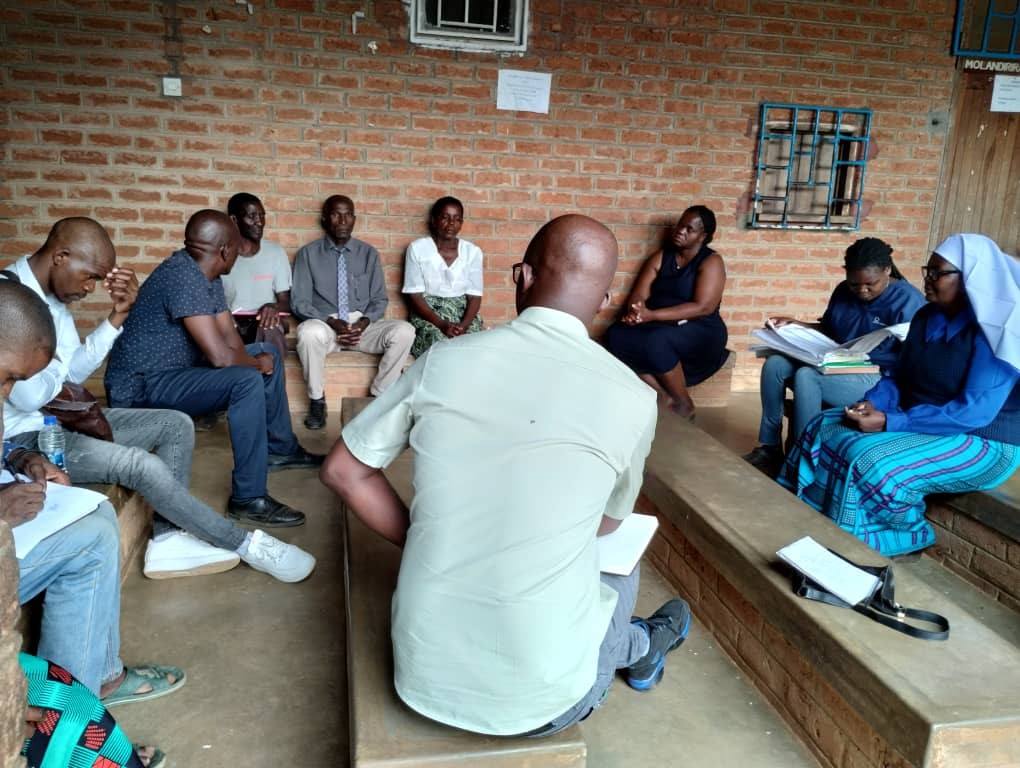Atupere’s journey into palliative care began long before he started at Harvard Medical School. As a clinician and public health practitioner in Malawi, he witnessed firsthand the strain patients and families endured when compassionate, end-of-life care was only available at distant referral hospitals. His thesis project, "Understanding the Accessibility of Palliative Care in Malawi: A Mixed-Method Case of the Neno District Palliative Care Program," builds on more than a decade of evolving care in Neno, a rural district where decentralized palliative care is reshaping what is possible for some of the country’s most marginalized patients.
The Neno District palliative care journey began in 2011 with services at the district hospital. Over the years, a deliberate and systematic expansion brought services to Lisungwi Community Hospital and, eventually, to eight additional health centers between 2020 and 2022. These efforts were designed to shift care closer to where people live, reducing the travel burden for patients with chronic or terminal conditions. Atupere’s early findings confirmed that decentralization was working—patients and their families expressed relief that they no longer had to journey long distances to receive basic comfort and symptom management. Health care workers, too, appreciated following up with patients more consistently and providing support within their communities.
Yet alongside these successes came sobering reminders of how fragile the gains could be. Interviews with healthcare providers revealed systemic challenges: health centers lacked the supply chain's infrastructure, autonomy, and reliability to provide truly comprehensive palliative care. One provider recalled how medicine shortages delayed pain relief for patients in critical condition. Another spoke about the challenges of delivering dignified care in environments where beds, transportation, and even water were scarce. The weight of these gaps became especially clear during home visits, where Atupere and his research assistant met patients living in severely underserved conditions, without clean water, stable housing, or access to nearby health centers.
During the qualitative phase of his study, Atupere conducted interviews with clinicians, nurses, community health workers, patients, and caregivers. One of the district’s current Palliative Care Coordinators—a nurse with a bachelor’s degree in Nursing and Midwifery—shared how a single conference sparked his commitment to the field. Another, a clinical officer with nearly a decade of experience in palliative care, traced his path from general practice to becoming a trainer and mentor to others across the district.
These personal stories offered essential insight into the real-time evolution of a care system. Even during data collection, the work of building capacity continued. In September and October, Atupere co-led a five-day palliative care training in Neno, collaborating with facilitators from the Ministry of Health, the College of Medicine, and Partners In Health. The training brought together clinicians across Neno and neighboring Mwanza District to strengthen care quality, mentorship, and coordination. It was a rare moment to reflect as a team, not only on what had been achieved, but on how far they still had to go.
In every clinic, conversation, and patient home, Atupere encountered the same truth: Palliative care in rural Malawi is about more than medicine. It is about relationships, dignity, and justice. When resources are scarce and health systems are stretched thin, what matters most is not ego or hierarchy, but the patient in front of you. His fieldwork reinforced the importance of collaboration, humility, and community-based care that listens and adapts.
As he prepares to leave Harvard, Atupere hopes the lessons from Neno can contribute to a broader vision of global health equity. His work in Malawi shows how decentralized models can transform lives even in constrained environments when paired with local leadership and consistent support. The story of palliative care in Neno is still being written, but it is already one of resilience, compassion, and a commitment to meeting people where they are.
